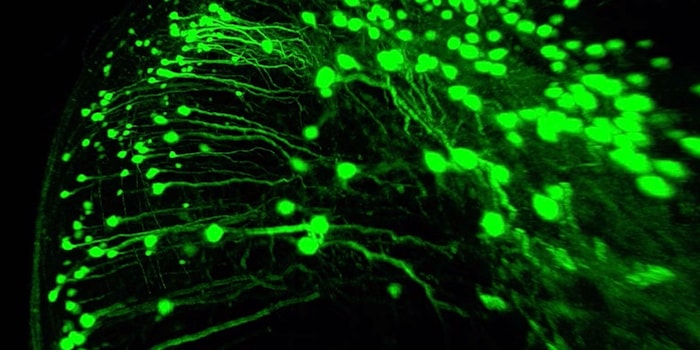
Do egg-shaped brain cells help us recognise and remember?
A newly discovered cell type in the brain could ensure that we perceive unfamiliar things as such and remember them. The egg-shaped cells are active as soon as something new comes into view.
Scientists have discovered a type of brain cell that could play an important role in how we recognise new objects and memorise them. The "ovoid cells" - named after their egg-shaped form - become active as soon as we recognise something unfamiliar. The discovery of these specialised neurons calls into question the previous assumption that the hippocampus contains only one cell type that controls various memory functions, as the research team from the University of British Columbia reports in "Nature Communications".
The newly discovered brain cells stood out due to their distinctive shape when analysing a tissue sample from a mouse brain. They are only found in small numbers in the hippocampus of humans, mice and other animals and differ significantly from other neurons in terms of structure, function and connectivity, according to the researchers.
In order to better understand the function of these nerve cells, the team had the mice explore an environment with unknown objects. Using a miniature single-photon microscope, the experts observed that the cells lit up as soon as the animals discovered something new. Once the rodents had familiarised themselves with the object, the cell activity decreased. The researchers concluded that the cells had fulfilled their task: The mice remembered the object. "You rarely see such a clear link between cell activity and behaviour. And in mice, these cells can remember a single object for months - an extraordinary memory for these animals," says first author Adrienne Kinman.
In further experiments, the research team wants to investigate whether the egg-shaped cells play a role in certain brain diseases. According to the scientists, dysregulation - such as excessive or insufficient activity - may trigger symptoms of diseases such as Alzheimer's or epilepsy. The discovery could also indicate that there are other as yet unknown types of neurons in the brain that perform specific tasks in learning processes, memory and cognition.
Spectrum of Science
We are partners of Spektrum der Wissenschaft and want to make well-founded information more accessible to you. Follow Spektrum der Wissenschaft if you like the articles.
Original article on Spektrum.de
Experts from science and research report on the latest findings in their fields – competent, authentic and comprehensible.
From the latest iPhone to the return of 80s fashion. The editorial team will help you make sense of it all.
Show all